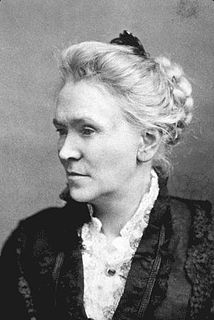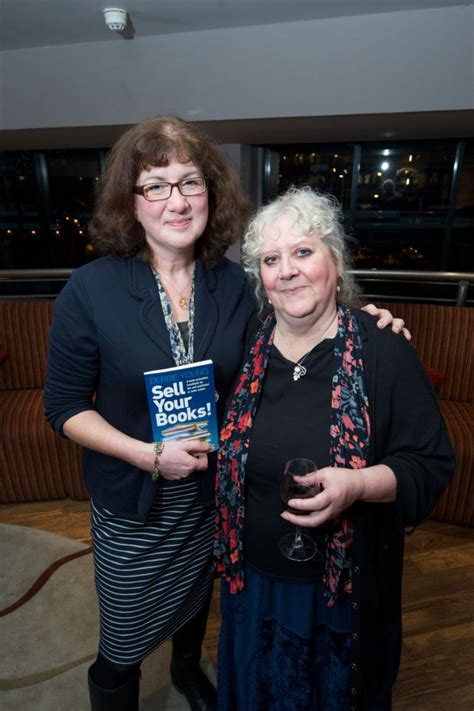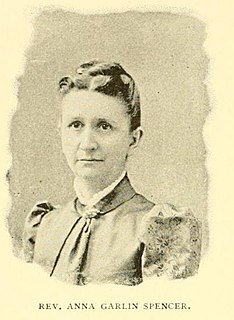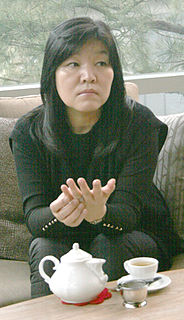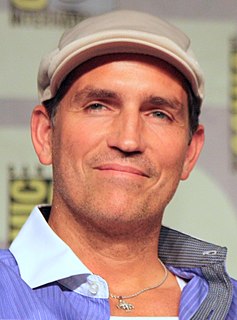A Quote by Elizabeth Cady Stanton
The strongest reason for giving woman all the opportunities for higher education, for the full development of her faculties, her forces of mind and body... is the solitude and personal responsibility of her own individual life.
Related Quotes
The strongest reason for giving woman all the opportunities of higher education, for the full development of her faculties, forces of mind and body; for giving her the most enlarged freedom of thought and action; a complete emancipation from all forms of bondage, of custom, dependence, superstition; from all the crippling influences of fear - is the solitude and personal responsibility of her own individual life.
The point I wish plainly to bring before you on this occasion is the individuality of each human soul--our Protestant idea, the right of individual conscience and judgment--our republican idea, individual citizenship. In discussing the rights of woman, we are to consider, first, what belongs to her as an individual, in a world of her own, the arbiter of her own destiny, an imaginary Robinson Crusoe with her woman Friday on a solitary island. Her rights under such circumstances are to use all her faculties for her own safety and happiness.
The most stupendous system of organized robbery known has been that of the church towards woman, a robbery that has not only taken her self-respect but all rights of person; the fruits of her own industry; her opportunities of education; the exercise of her judgment, her own conscience, her own will.
Standards of beauty describe in precise terms the relationship that an individual will have to her own body. They prescribe her mobility, spontaneity, posture, gait, the uses to which she can use her body. They define precisely the dimension of her physical freedom and psychological development, intellectual possibility, and creative potential is an umbilical one.
One day, lad, your eyes will light upon a woman, and you will never forget that glint in her eye, that toss of her head, or sway of her hips. You will dream of her, whether you are asleep of awake. She will possess your mind, and your body will be on fire for her. Nothing will ever erase the linger of her scent in your nostrils, the touch of her hand on your body, the feel of her flesh beneath your fingers. When you find a woman to love, Cnut, your life changes forever.
We think of a feminist as someone a woman becomes in reaction to personal indignities and social injustices. But the truth is, such inequities only awaken her to the feminist she has always fundamentally been - that is, a person who understands that her first responsibility is to her own humanity. That's why, for my money, the first known use of the word 'feminist' is still the best, appearing in an 1895 book review: a woman who 'has in her the capacity of fighting her way back to independence.
It is as great a crime to leave a woman alone in her agony and deny her relief from her suffering as it is to insist upon dulling the consciousness of a natural mother who desires above all things to be aware of the final reward of her efforts, whose ambition is to be present, in full possession of her senses, when the infant she already adores greets her with its first loud cry and the soft touch of its restless body upon her limbs.
Wherever the State touches the personal life of the infant, the child, the youth, or the aged, helpless, defective in mind, body or moral nature, there the State enters "woman's peculiar sphere," her sphere of motherly succor and training, her sphere of sympathetic and self-sacrificing ministration to individual lives.
...I have so many dreams of my own, and I remember things from my childhood, from when I was a girl and a young woman, and I haven't forgotten a thing. So why did we think of Mom as a mom from the very beginning? She didn't have the opportunity to pursue her dreams, and all by herself, faced everything the era dealt her, poverty and sadness, and she couldn't do anything about her very bad lot in life other than suffer through it and get beyond it and live her life to the very best of her ability, giving her body and her heart to it completely. Why did I never give a thought to Mom's dreams?

